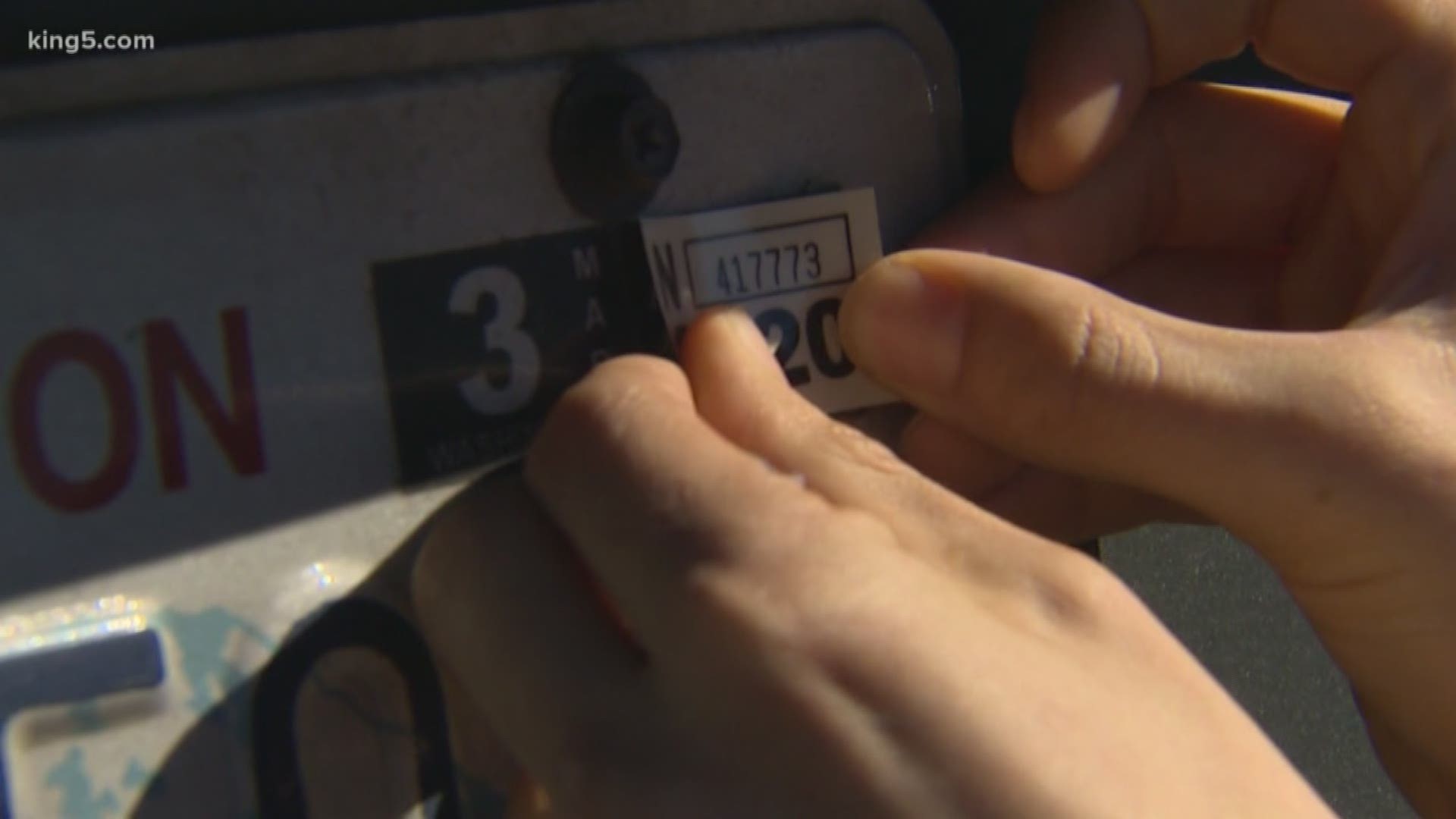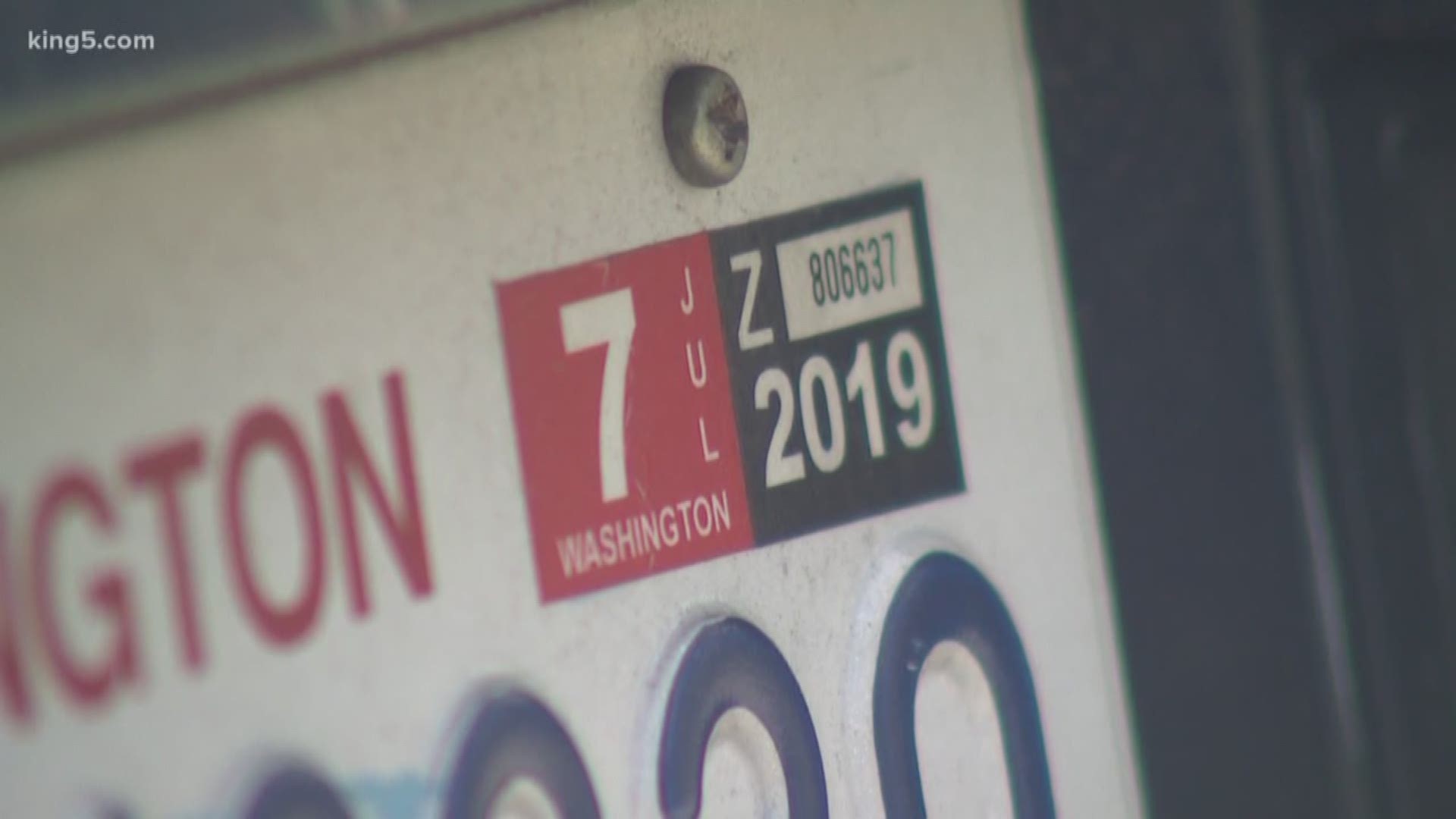Tim Eyman is fanning the flames of outrage days after the Washington State Department of Licensing admitted hundreds of people were overcharged when they renewed license plate tags.
“It's in the government’s self-interest to always miscalculate it because most people won't catch it,” said Eyman.
Last week, the licensing department acknowledged the state issued 924 refunds worth $93,598 since March 2017 to people whose car tabs had been billed incorrectly.
The bills had been calculated using the manufacturer's suggested retail price (MSRP), which impacts how much money a person would pay for the Sound Transit fee, part of the Regional Transit Authority tax fee.
“That's the reason why we want to get rid of that entire system,” Eyman said.
Voters approved the $30 cap in 1999 and 2002. The Sound Transit 3 (ST3) measure approved by voters in 2016 raised the annual fees to pay for public transportation projects.
Eyman is pitching Initiative 976, which would bring back a flat $30 car tab fee.
But state and local politicians are quick to criticize the idea, saying it could cripple transportation projects and put ST3 in danger of not delivering to voters. They’ve also been quick to jump on Eyman’s legal troubles.
Eyman has been charged with misdemeanor theft for allegedly stealing a chair from an Office Depot in Lacey. He has also been going through bankruptcy. Eyman fully acknowledges the events but said it shouldn’t impact the debate over car tabs.
“I think it is really instructive when you think to yourself our argument for $30 tabs is you voted for it twice. Our opponent’s argument is, 'Tim Eyman stole a chair.' My argument is you're already paying a huge sales tax and huge gas tax,” Eyman explained. “When you own a vehicle, you shouldn't have to pay a third time. They're saying he's in bankruptcy so vote no on $30 tabs?”
Eyman also acknowledged that he believes if voters approved his $30 tab initiative in November, lawmakers would attempt to amend it after the fact. He said that’s why it includes language to force vehicle valuations to stick to the Kelley Blue Book value, instead of MSRP.


